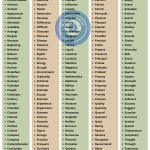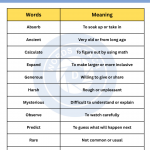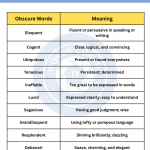Simple English Sentences You Can Use in Everyday Communication
Conquering a language feels like scaling a mountain, but what if we told you the view from the top could be reached, one simple sentence at a time? Today, we focus on Everyday Heroes: simple English sentences that empower you to navigate daily interactions with confidence, from the grocery store to the coffee shop, and beyond!
Building Your Sentence Superpowers:
Every hero needs a foundation. Let’s start with basic subject + verb combinations:
- I walk. (Simple present tense)
- She likes music. (Present tense)
- He ate breakfast. (Past tense)
- They will sleep well. (Future tense)
Now, add adjectives to describe and adverbs to modify verb actions:
- The red car drives quickly.
- She speaks English fluently.
- He built a tall sandcastle yesterday.
- They will eat delicious pizza tomorrow.
Unleashing Your Communication Magic:
Form questions using “Do/Does” + subject + verb to unlock information:
- Do you have milk? (Yes/No question)
- What is your name? (Wh- question)
- Does it rain often here? (Yes/No question)
- Where are you going? (Wh- question)
Express yourself like a champion with complete sentences:
- I am happy to see you.
- She is tired from work.
- He is hungry for lunch.
- They are excited for the movie.
Here are 220+ simple English sentences that you can use in everyday communication:
Greetings and Introductions:
- Hi!
- Hello!
- Hey there!
- Good morning!
- Good afternoon!
- Good evening!
- How are you?
- What’s up?
- Nice to meet you.
- It’s a pleasure to meet you.
- My name is [Your Name].
- I’m [Your Name].
- What’s your name?
- Where are you from?
- I’m from [Your Country].
- How’s it going?
- How have you been?
- Long time no see!
- How’s everything?
- How’s your day going?
- How’s your weekend?
- How was your day?
Expressing Feelings:
- I’m good.
- I’m fine, thank you.
- I’m okay.
- Not too bad.
- I’m great!
- I’m fantastic!
- I’m wonderful!
- I’m so-so.
- I’m not doing well.
- I’m feeling tired.
- I’m feeling happy.
- I’m feeling sad.
- I’m feeling excited.
- I’m feeling nervous.
- I’m feeling anxious.
- I’m feeling bored.
- I’m feeling stressed out.
- I’m feeling relaxed.
- I’m feeling confident.
- I’m feeling hopeful.
- I’m feeling grateful.
- I’m feeling proud.
- I’m feeling motivated.
- I’m feeling inspired.
- I’m feeling curious.
- I’m feeling surprised.
- I’m feeling overwhelmed.
- I’m feeling lonely.
- I’m feeling loved.
Basic Conversation Starters:
- What do you do for a living?
- What do you like to do in your free time?
- Where do you work?
- What’s your favorite hobby?
- Do you have any siblings?
- How was your weekend?
- What did you do yesterday?
- Where did you go on vacation?
- How was your trip?
- Have you seen any good movies lately?
- What’s your favorite TV show?
- Have you read any interesting books recently?
- Do you like to travel?
- What’s your favorite food?
- Do you have any pets?
- What kind of music do you like?
- What’s your favorite sport?
- What’s your favorite season?
- Do you have any plans for the weekend?
- What’s your favorite place to hang out?
- What’s your favorite restaurant?
- What’s your favorite holiday?
- What’s your dream vacation destination?
- What’s your favorite thing to do on weekends?
- Do you like to cook?
- What’s your favorite kind of cuisine?
- Do you enjoy outdoor activities?
Talking About the Weather:
- It’s sunny today.
- It’s hot outside.
- It’s cold outside.
- It’s raining.
- It’s snowing.
- It’s windy.
- It’s cloudy.
- It’s foggy.
- It’s humid.
- It’s warm.
- It’s cool.
- It’s drizzling.
- It’s pouring rain.
- It’s snowing heavily.
- It’s a beautiful day.
- The weather’s been unpredictable lately.
Expressing Gratitude:
- Thank you.
- Thanks a lot.
- Thanks so much.
- I appreciate it.
- I’m grateful.
- That’s very kind of you.
- You’re so thoughtful.
- I’m so thankful.
- Thanks for your help.
- Thanks for everything.
- I owe you one.
Apologizing:
- I’m sorry.
- I apologize.
- My apologies.
- I didn’t mean to.
- I’m really sorry about that.
- Please forgive me.
- It won’t happen again.
- I feel terrible about it.
- I messed up.
Making Requests:
- Can you help me?
- Could you please pass the salt?
- Would you mind opening the window?
- Can you lend me a hand?
- Would you be able to pick me up at the airport?
- Can you do me a favor?
- Could you please turn down the volume?
- Would you mind turning off the lights?
- Can you give me a ride?
- Could you please repeat that?
- Would you be so kind as to help me with this?
Giving Directions:
- Go straight ahead.
- Turn left/right at the intersection.
- Take the first/second/third street on the left/right.
- It’s on the corner of [Street Name] and [Street Name].
- It’s across from the park.
- It’s next to the supermarket.
- It’s behind the library.
- It’s in front of the bank.
- It’s down the street from here.
- It’s a few blocks away.
Shopping:
- How much does this cost?
- Do you accept credit cards?
- Can I try this on?
- Do you have this in a different size/color?
- Is there a discount on this item?
- Can I return this if it doesn’t fit?
- Where can I find [Product]?
- Do you have any sales going on?
- Can I pay with cash?
- Do you have a receipt?
- Can I exchange this for something else?
- Is there a warranty on this?
Ordering Food and Drinks:
- I’ll have [Menu Item], please.
- Can I get a [Menu Item], please?
- Do you have a menu?
- Can I see the wine list?
- Can I have a glass of water, please?
- Can I have a cup of coffee, please?
- Can I have the check, please?
- Is there a vegetarian option?
- Do you have any specials today?
- Can I order takeout/delivery?
- Can I have some extra napkins, please?
- Can I have some ketchup, please?
- Can I have some sugar for my coffee?
Talking About Daily Activities:
- I’m going to work.
- I’m going to school.
- I’m going to the gym.
- I’m going to the store.
- I’m going to a concert.
- I’m going to a party.
- I’m going to visit my parents.
- I’m going to meet a friend for lunch.
- I’m going to the movies.
- I’m going for a walk.
- I’m going to cook dinner.
- I’m going to read a book.
- I’m going to watch TV.
- I’m going to take a nap.
- I’m going to clean the house.
- I’m going to do laundry.
- I’m going to take a shower.
- I’m going to brush my teeth.
- I’m going to listen to music.
- I’m going to check my email.
- I’m going to check my messages.
- I’m going to check my social media.
Expressing Opinions:
- I think so.
- I agree.
- I disagree.
- I’m not sure.
- I’m not convinced.
- That’s interesting.
- That’s a good idea.
- That’s a bad idea.
- I don’t think that’s a good idea.
- I don’t think that’s a good plan.
- I’m not a fan of that.
- I’m not really into that.
- I’m not really sure about that.
- I don’t think that’s such a good idea.
- I don’t think that’s such a good plan.
- I’m not sure I agree with that.
- I’m not sure I agree with you.
- I’m not sure about that.
Expressing Agreement:
- Absolutely.
- Exactly.
- That’s right.
- I agree with you.
- I think you’re right.
- You’re absolutely right.
- I couldn’t agree more.
- I’m with you on that.
- I’m on the same page.
- I’m on board with that.
- That’s how I see it too.
- You’ve got a point there.
- You make a good point.
- I think we’re in agreement.
- I think we’re in sync.
Expressing Disagreement:
- I’m not sure about that.
- I’m not sure I agree with you.
- I’m not convinced.
- I don’t see it that way.
- I beg to differ.
- I’m afraid I can’t agree with you there.
- I’m afraid I have to disagree.
- I don’t think that’s quite right.
- That’s not how I see it.
- That’s not what I had in mind.
These simple English sentences cover a wide range of everyday situations and can help you communicate effectively in various contexts.





